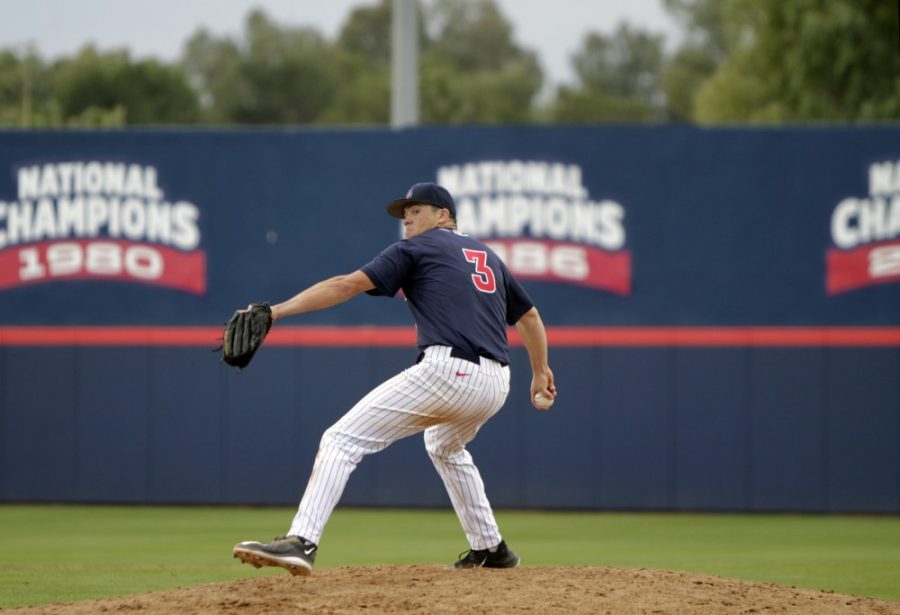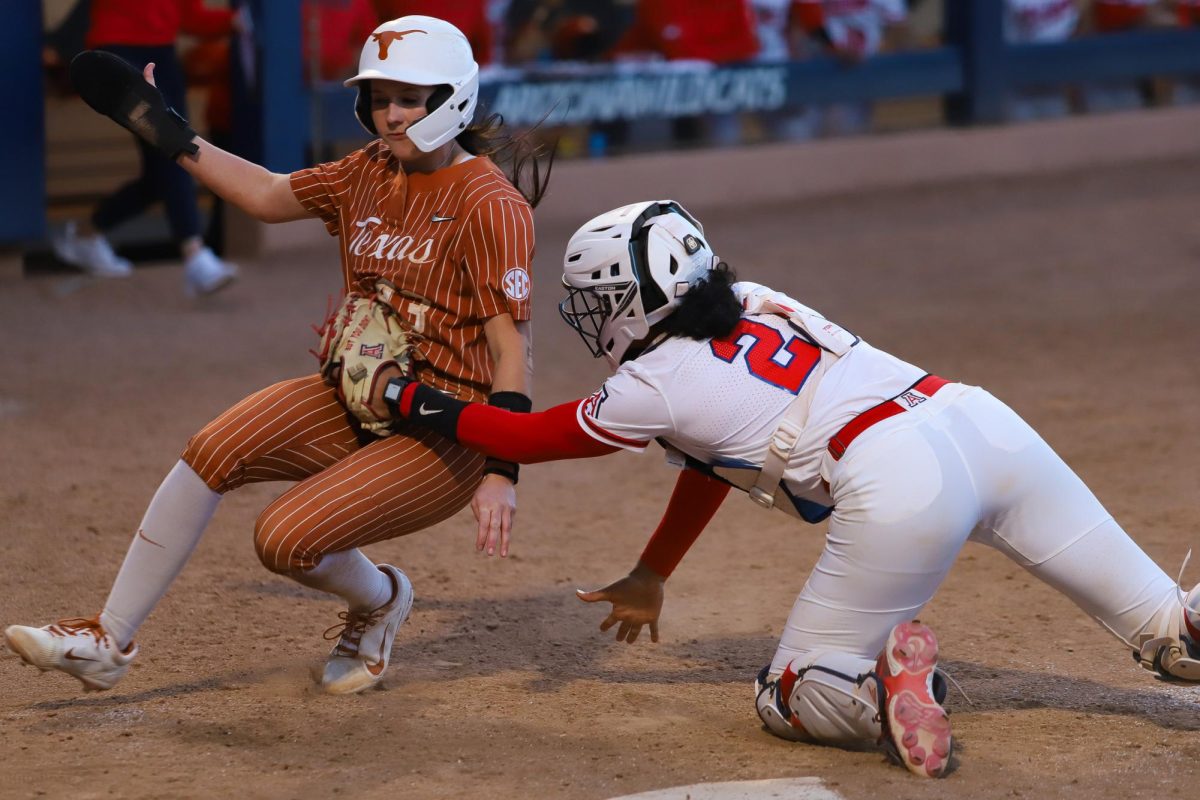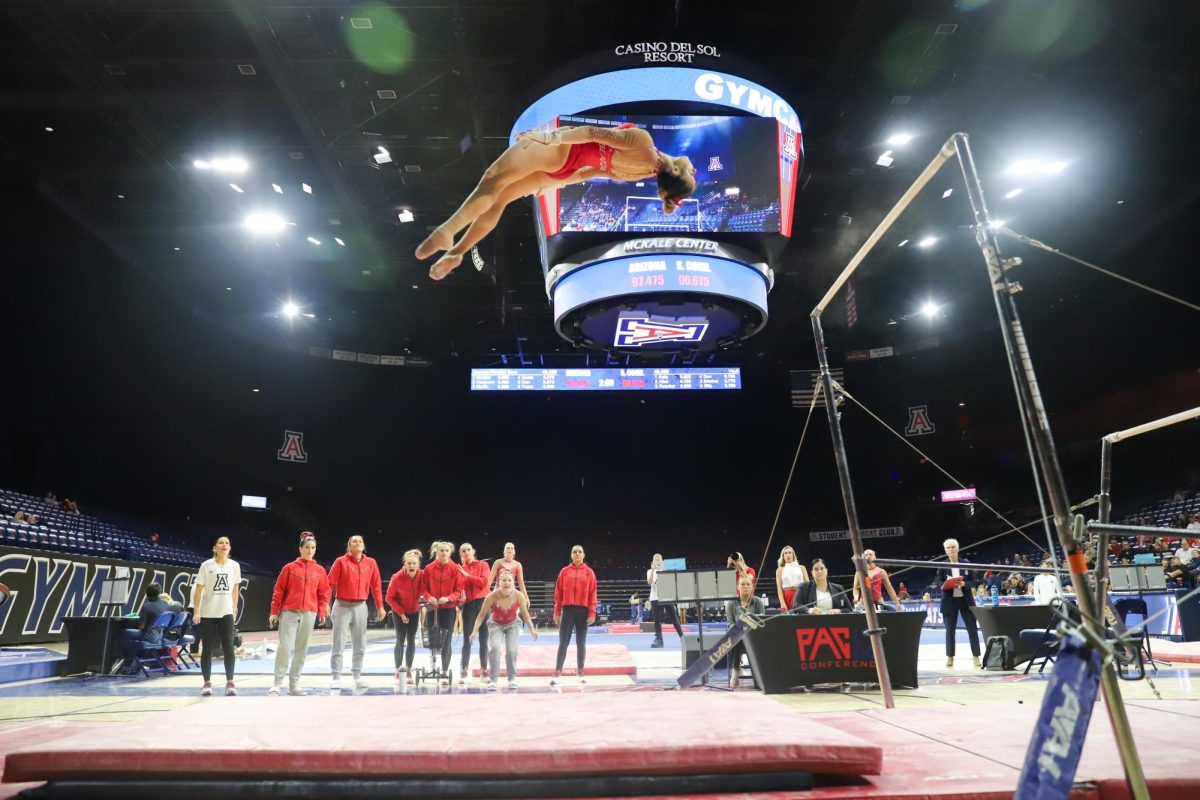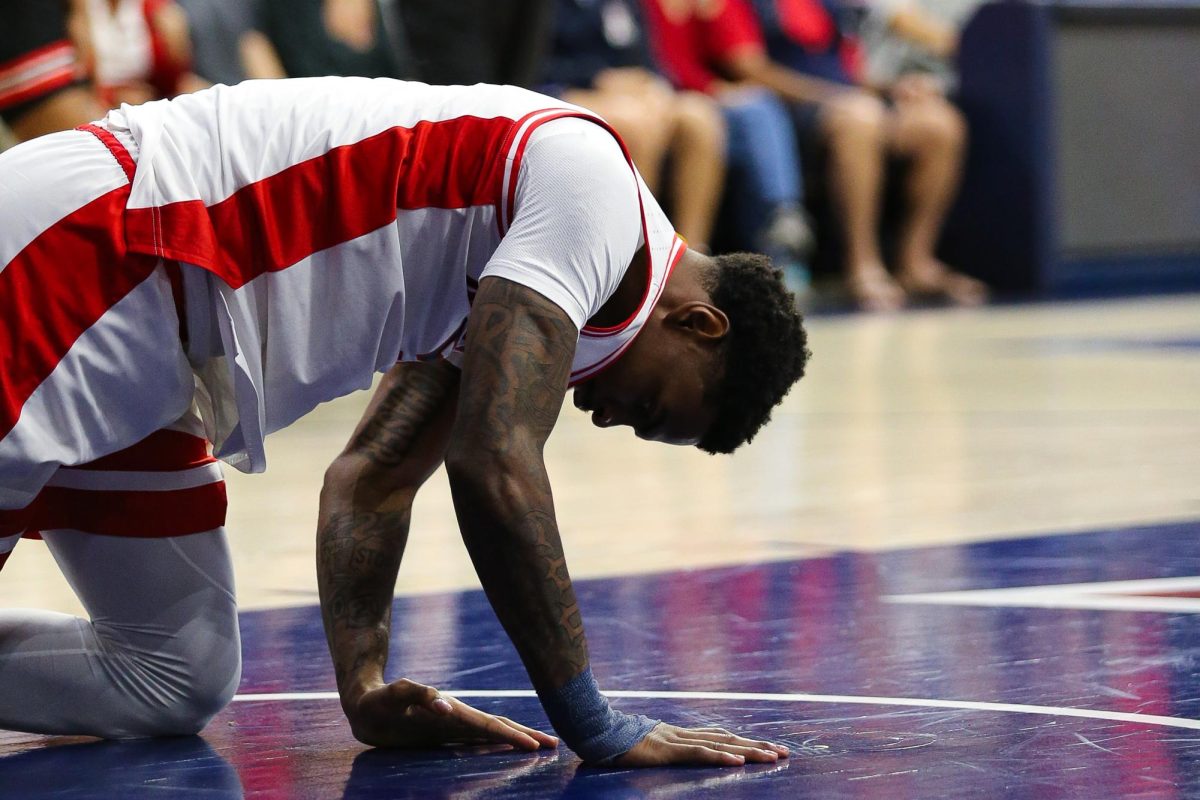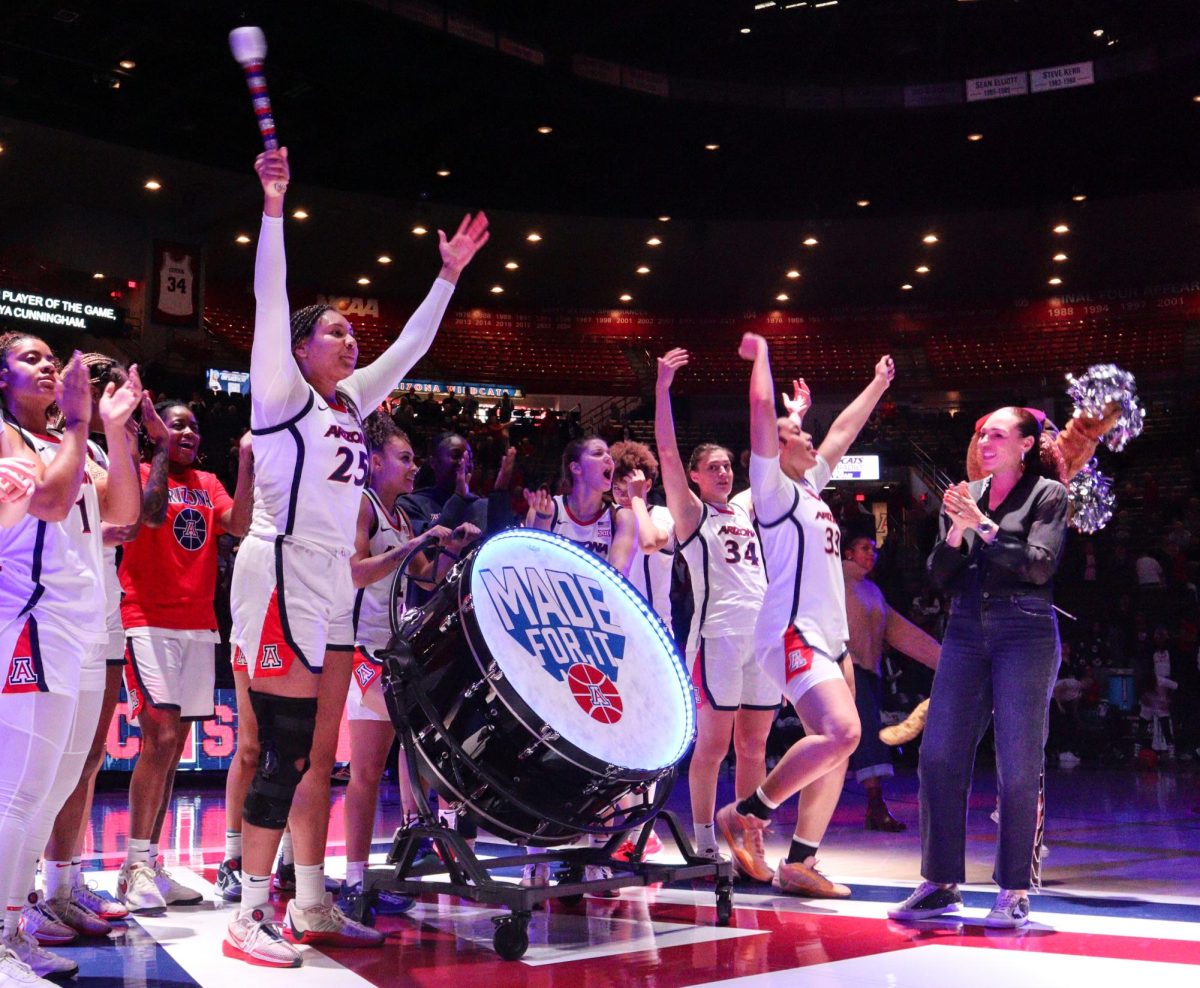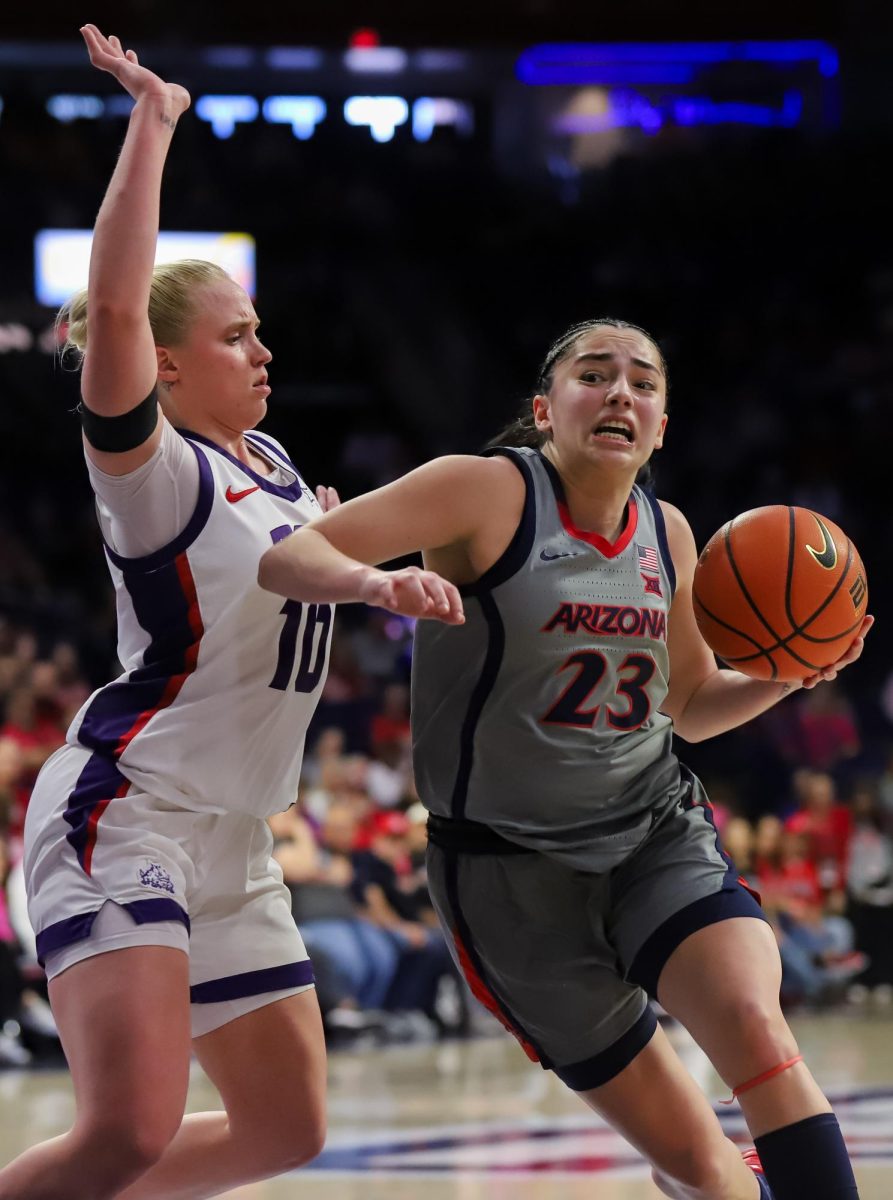Arizona baseball entered the season with its pitching as the biggest question mark.
It was an inexperienced group of arms, though Arizona head coach Jay Johnson was encouraged by the number of options he had.
“I think the strength in our pitching staff is probably in our numbers,” Johnson said before the season.
He was constantly shuffling his starting rotation to find the right mix at the beginning of the year, and it didn’t take him long to find an effective trio. Nathan Bannister, JC Cloney and Bobby Dalbec have become a force to be reckoned with for the Wildcats, allowing the team to go toe-to-toe with any pitching staff in the Pac-12 Conference.
“I’m very proud of those guys,” Johnson said. “I feel like we could line up—we will line up—against some really good teams, and I feel good about how we’ll match up.”
Bannister has a 2.92 ERA in 62.2 innings pitched, Cloney has a 2.72 ERA in 53 innings and Dalbec has a 2.96 ERA in 48.2 innings. They’ve been dynamite.
Add the starting pitching’s success to the fact Arizona’s offense leads the conference in hits and runs scored, and the Wildcats should figure to be one of the top teams in the Pac-12. Yet, they sit at No. 7 in the conference standings with a 7-8 conference record and a 22-14 overall record.
The reason?
While the Wildcats’ starting pitching has been solid and the team’s offense consistently produces, their pitching late in games has sputtered.
The Wildcats held a 5-1 lead against the Stanford Cardinal heading into the eighth inning Sunday. Dalbec pitched into the eighth, but fatigue got the best of him as he gave up three runs, allowing the Cardinal to cut the defecit to one.
The Wildcats were able to hold onto the one-run lead heading into the ninth where they would allow two more runs, which wound up costing them the game and a chance at a sweep in a series they dominated.
“There’s a lot of disappointment in this thing, there’s no getting around it,” Johnson said after the loss. “We dominated the series for 26 innings or 25 innings [out of 27].”
Outfielder Zach Gibbons added, “It’s a great one to win, but a tough one to lose. I feel like we came out and played great baseball.”
The Wildcats found themselves in a similar situation against Utah two weeks prior; and not once, but three different times.
Arizona led all three games of the series against the Utes until at least the seventh inning in each game.
But the Wildcats gave up six runs in the seventh inning to lose 6-3 in game one. The Utes scored five runs in the bottom of the ninth en route to a 7-6 walk-off victory in game two. And in the series finale, the Utes scored four runs in the bottom of the eighth to erase a 2-0 Wildcats’ lead.
In other words, had Arizona’s pitching been able to close those games out, it could have—or should have—swept Utah. The Wildcats instead left Salt Lake City with three losses—a significant swing.
Add those losses to the one the Wildcats suffered Sunday, it drops them to a 7-8 conference record and seventh in the standings, when they could very well be 11-4 and at the very top of the conference, instead.
Considering the Wildcats were picked by the media to finish 10th in the Pac-12, seventh isn’t bad. Overall, the team still has exceeded expectations and put together a solid season.
But, given the wins the team has let slip away in the final innings, you can’t help but feel as though it should be more than a seventh-place kind of year.
Follow Ryan Kelapire on Twitter



